Developers accused of 'segregating' children at London playground
- Published
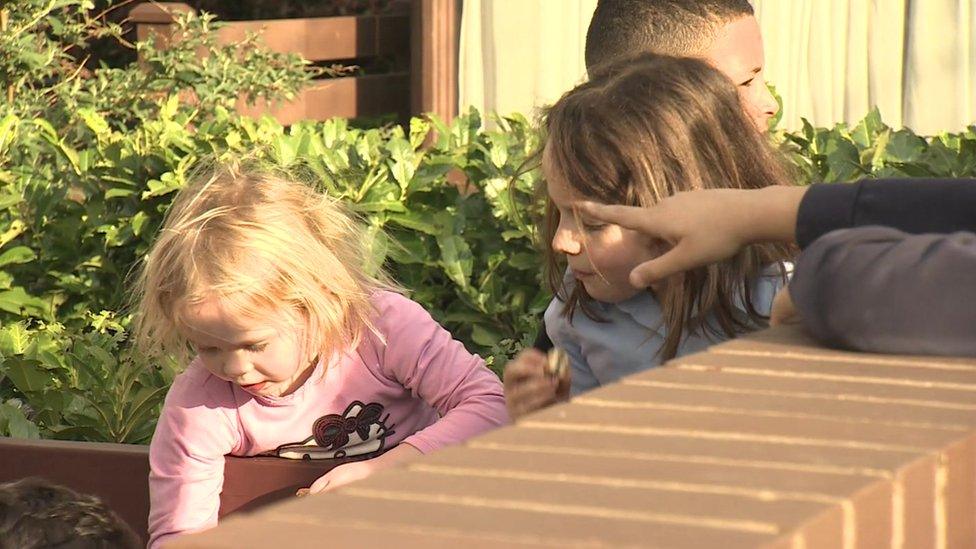
One resident said the segregation between Wren Mews and Baylis Old School children "made her cry"
Developers have been accused of "segregating" children from private and social housing homes after the latter were blocked from a communal play area.
Residents at a housing complex in south London say children from the private flats can enjoy the playground but those from social housing cannot.
Lambeth Council said it had not approved the walls and hedges that enclose the play area.
Henley Homes said it marks the border between two separate developments.
The council gave the go-ahead to the 149-flat development on Lollard Street, Kennington, external, in 2013, with play areas designed to "maximise their inclusivity".
But the complex has since been split into two parts: Wren Mews, which comprises 36 social housing properties, and the Baylis Old School estate, which comprises private owners.
Wren Mews residents do not have the "right of access to the Baylis Old School estate", according to Henley Homes.
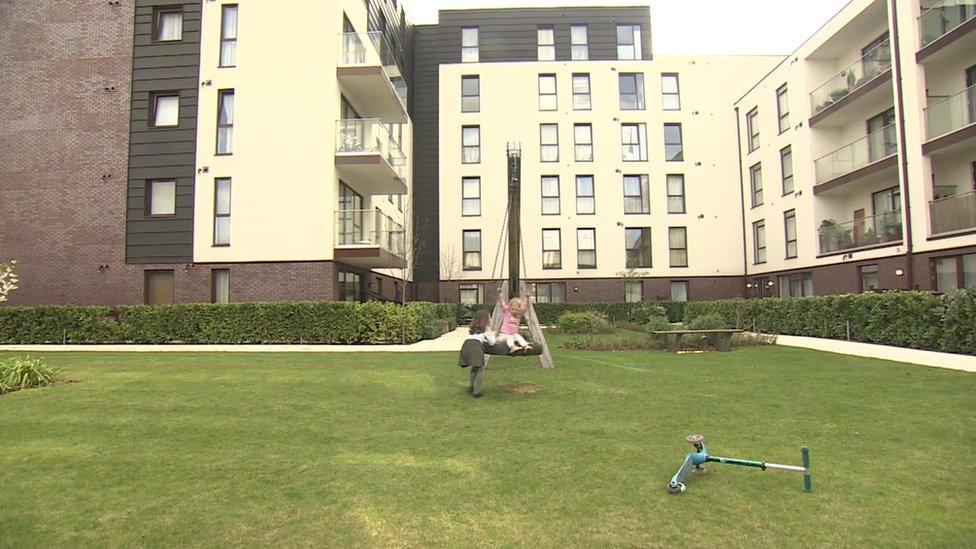
The London Assembly planning committee chair said "there should be no segregated spaces"
Louise Whitley, a private owner whose children are friends with youngsters from Wren Mews, said the separation "made her cry".
"They're segregating the children," she said.
She told The Guardian, external: "We bought a flat here because it was marketed as family-friendly.
"But now our children's friends look down from their windows and can't come and join us.
"We want them to be given back the access that was shown in the original plans."
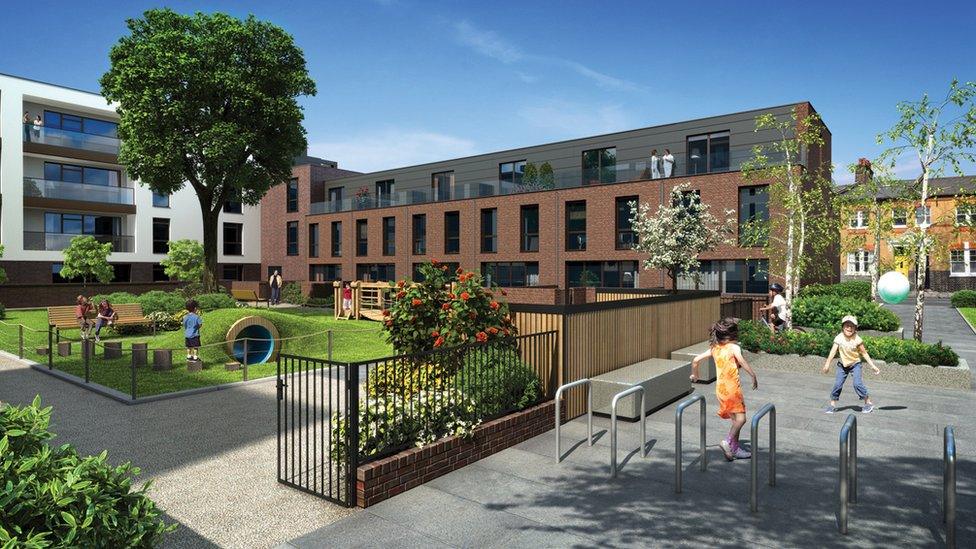
Louise Whitley said she bought a flat in the development because it was marketed as family-friendly
Housing Secretary James Brokenshire tweeted: "Kids being excluded from enjoying a play area on the same development because they live in social housing is outrageous."
Dinah Bornat, an architect and expert on child-friendly design who advises planners and local authorities, told BBC Radio London: "I think it's really, really sad.
"For children to have to play in a segregated way is entirely unnatural for them and it sends a message to them that they're lesser human beings."
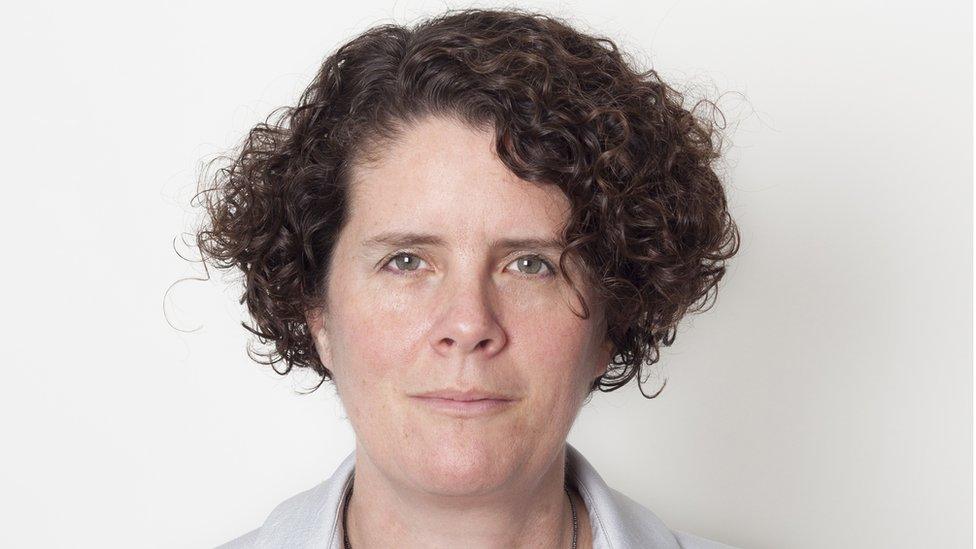
Architect Dinah Bornat described the situation as "really sad" and "unnatural"
Nicky Gavron, chair of the London Assembly planning committee, said the separation "completely flouts the mayor's play and informal recreation standards for children and young people".
"There should be no segregated spaces, no denial of access to communal play space," she added.
Allow X content?
This article contains content provided by X. We ask for your permission before anything is loaded, as they may be using cookies and other technologies. You may want to read X’s cookie policy, external and privacy policy, external before accepting. To view this content choose ‘accept and continue’.
Lambeth Council's cabinet member for planning Matthew Bennett said the "current segregated arrangement" was "completely unacceptable" and not in the original planning application.
He said access to the playground had been "changed by the management company" and the council had written to Henley Homes "as a matter of urgency".
Allow X content?
This article contains content provided by X. We ask for your permission before anything is loaded, as they may be using cookies and other technologies. You may want to read X’s cookie policy, external and privacy policy, external before accepting. To view this content choose ‘accept and continue’.
Henley Homes said the development was "in fact two neighbouring estates" with Warwick Estates managing the private part and Guinness Partnership the social housing side.
The issue was a matter for those bodies and residents to "discuss amongst themselves and agree a way forward", a spokeswoman added.
Warwick Estates declined to comment.
Guinness Partnership said: "We would be delighted if our customers' children could access play areas on the rest of the development."

- Published5 December 2016
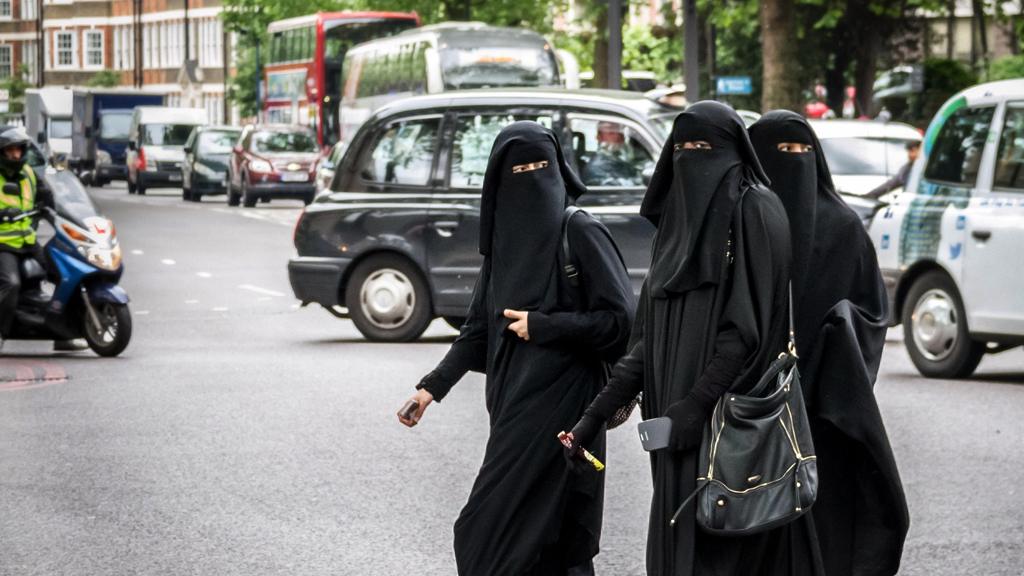
- Published10 December 2014